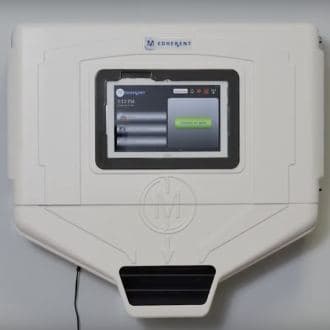Stay compliant with HIPAA
The Health Insurance Portability and Accountability Act of 1996 (HIPAA) establishes standards for the security and privacy of health data, including electronic protected health information (ePHI). Covered entities and business associates must implement safeguards to limit risk and protect patient data across mobile devices, laptops, and desktops.
What HIPAA protects
Patients have legal rights over their health information. When digitized, this information is called ePHI.
Key patient rights include:
- The right to authorize disclosure of their health information and records.
- The right to request and obtain a copy of their health records.
- The right to request corrections to their records.
The HIPAA Security Rule technical safeguards include:
Access control: Limit ePHI access to authorized users only, with unique IDs and session controls.
Audit controls: Use technical mechanisms to record and examine access and activity in systems containing ePHI.
Integrity: Protect ePHI from improper alteration or destruction and verify data integrity.
Transmission security: Protect ePHI in transit over networks with encryption and secure channels.
How Codeproof helps keep you HIPAA aligned
Note: Codeproof provides endpoint and app controls that support HIPAA safeguards. Your organization remains responsible for overall compliance, including policies, training, and processes.
- Encryption and access controls: Enforce device encryption, strong passcodes, auto-lock, and idle timeout on iOS, Android, Windows, and macOS.
- BYOD separation: Use Android Work Profile and Apple User Enrollment to keep work data separate from personal data, with selective wipe for offboarding or lost devices.
- App governance: Approve required apps, block risky apps, and control data movement between apps with managed configurations and Open In restrictions.
- Secure connectivity: Deploy email, Wi-Fi, certificates, and per app VPN for secure access to ePHI systems.
- Threat and posture controls: Detect rooted or jailbroken devices, monitor compliance status, and restrict access for noncompliant endpoints.
- Remote actions: Lock, locate where policy allows, selective wipe or full wipe lost or stolen devices.
- Audit readiness: Maintain device and user inventory, configuration history, and exportable activity logs and reports.
Related: iOS MDM · macOS MDM · Windows MDM · Android MDM · BYOD
HIPAA FAQs
What is HIPAA?
Does using Codeproof make us HIPAA compliant?
Can we remove ePHI from a BYOD device without touching personal data?
How should we handle a lost or stolen device?
Can we enforce app allowlists and block risky apps?
What evidence can we provide auditors?
"Throughout my experience with Codeproof, it has worked flawlessly. Even more importantly, Codeproof support is unrivaled."
Working with Codeproof has been a relief, it allows our company to have control over software and devices and visibility to ensure our employees have the proper equipment to do their job each and every day.
We didn’t make a single compromise to get the protection we wanted and needed.
We have site phones that we need locked and tracked. We have recovered lost or stolen phones...and pushed new apps remotely.
The Codeproof platform not only assists in fleet management, it has made retrieving company property far more reliable.
Customer support is always accessible, and the team consistently goes out of their way to ensure the MDM platform meets all of our needs.
Codeproof had the right balance of easy individual device configuration and group-level settings, as well as an excellent support team and willingness to add new features to meet our needs, all at a competitive price.
Having our employees work in remote locations, Codeproof has really helped us manage our devices...They are very helpful and detailed when explaining thing.
Codeproof has made device management much easier than some larger MDM solutions. From the beginning of our trial Console, up to the present, we were able to easily contact the development team at Codeproof with any ideas for improvements.
With Codeproof, the first thing I noticed is that the UI is much more intuitive and simpler to navigate. I feel like there are as many, if not more, features available to me in Code Proof but they are a little easier to find.
Foundation is so grateful for the partnership with Codeproof and their willingness to support students and families in need of literacy resources. While our technical needs are likely less than that of other companies, we have found great value in the Codeproof product.
Codeproof has great customer support. If there is an issue, or if we need assistance with anything, they are very quick to respond and lend a hand.
Terrapin Pharmacy’s Executive Management and Technology Developers would be extremely likely to recommend Codeproof to others based upon the interactions we have had with the Codeproof team and the can-do culture within their organization.
Codeproof is a very comprehensive MDM product. We received great service at all times from their technicians when we had issues. They are continually working on improving the product with feedback from customers like us, so we can have better control of our remote equipment.
[An] upbeat, well-organized, and helpful company. Codeproof provided superior customer support during a time of uncertainty.
Codeproof has been an asset in maintaining security, control and reducing liability of our mobile devices by allowing us blanketed control of our mobile fleet at all times regardless of day and location. It will continue to be the foundation for our mobile security for now and the future. Their security options and scalability is priceless.
I chose Codeproof over other players in the market because it's simple and customizable dashboard caters to the needs of my business. Codeproof tries to find solutions and treats you as partners rather than just a customer.
I chose Codeproof for our internal MDM solutions over other options because the case study and utilization of the system were very understandable. It decreased our potential costs related to device investments while increasing device security and reducing operational costs.




















































